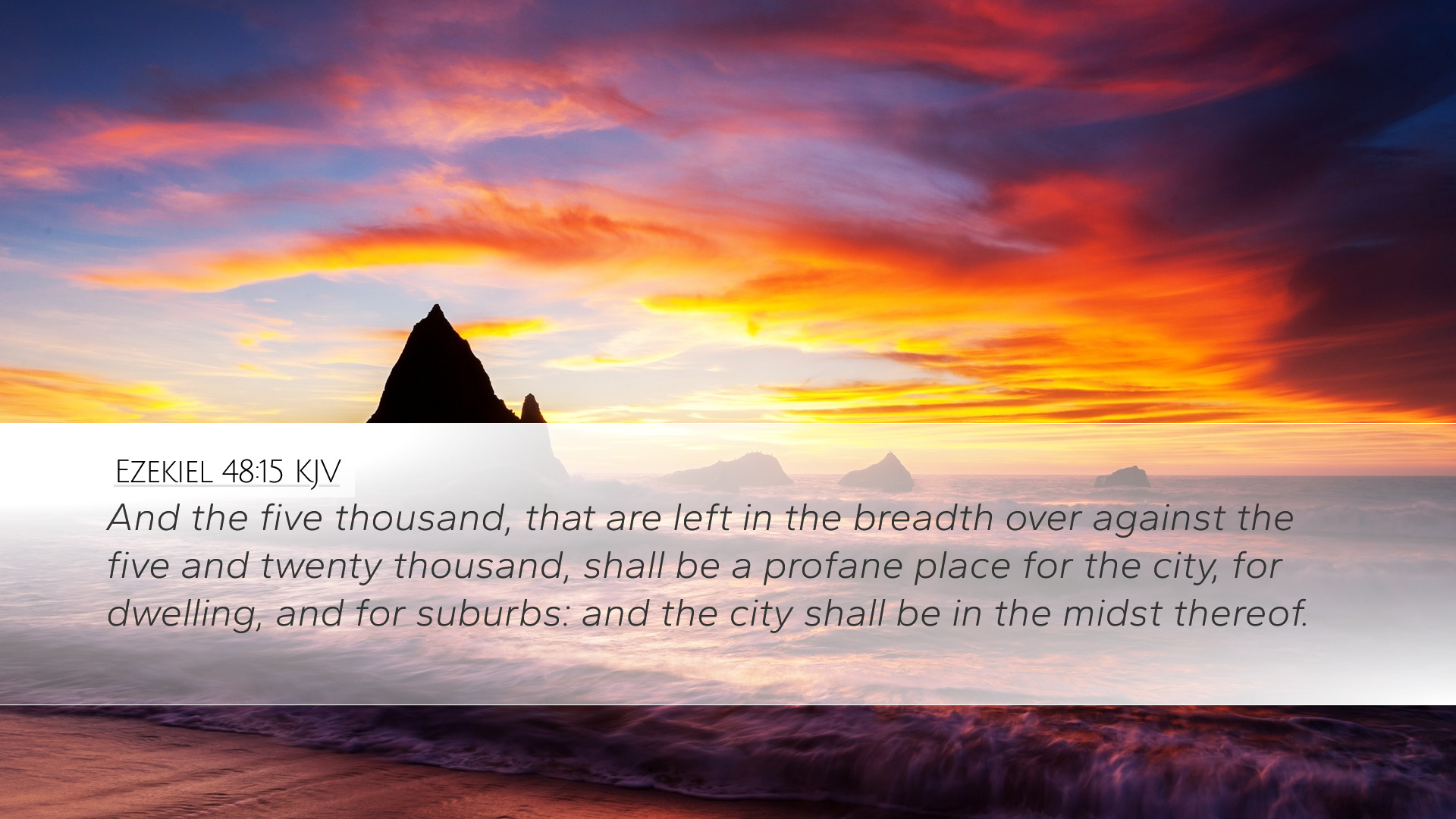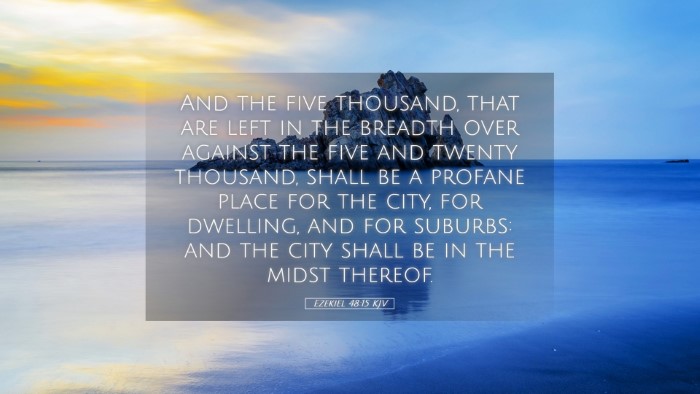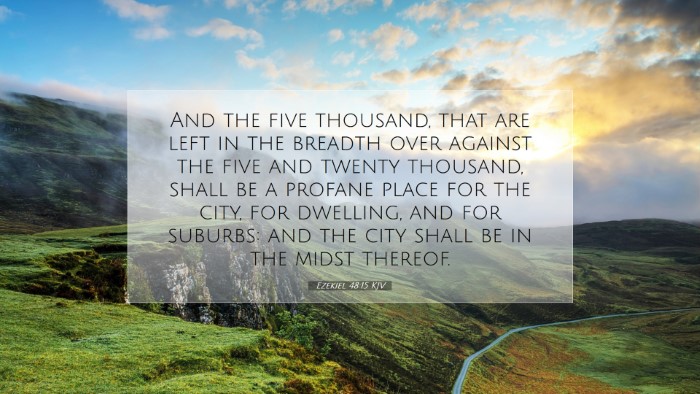Ezekiel 48:15 - Commentary and Insights
Verse Context: Ezekiel 48:15 states: "And the residue, which remaineth of the length of the five thousand cubits in the breadth, shall be for a profane place for the city, for dwellings, and for the suburbs: and the city shall be in the midst thereof."
Overview of the Passage
The final chapter of Ezekiel presents a detailed vision of the restored Israel, particularly focusing on the distribution of land among the tribes. In verse 15, there is a distinction made for the portions set aside for urban use and the sanctified areas for God's people. This verse serves to illustrate the order and holiness of God’s design for His people and the cities they inhabit.
Historical Context
This passage comes at a time when the people of Israel were faced with exile and despair. The prophet Ezekiel aims to provide hope and prophetic vision for the future restoration of God's people to their land. The division of land is not merely geographical, but holds theological significance as it reveals God’s intentions for holiness, community, and presence among His people.
Theological Insights
- The Role of the Profane Place: The 'profane place' mentioned in this verse does not connote something intrinsically evil but indicates areas meant for daily life, allowing for human habitation and activity. Clarke suggests this is indicative of God’s acknowledgment of the necessity for ordinary life amidst the sacred.
- Divine Order: Matthew Henry elaborates on the theme of divine order in this passage. The careful specification of land allocation signifies God’s attentiveness to detail and His desire for His people to inhabit organized and designated spaces.
- Spiritual Significance of the City: The presence of the city 'in the midst thereof' resonates with the New Covenant understanding of God dwelling among His people, as expanded upon in the Book of Revelation. This reflects an enduring theme of God’s desire for relationship with humanity.
Application for Believers
For contemporary believers, this verse acts as a reminder of the sanctity of life within the mundane aspects of daily existence. The balance between sacred and secular is essential; where believers are called to infuse their everyday interactions with purpose and holiness, as delineated in the writings of Barnes.
This passage challenges pastors and congregants alike to view their communities as places where the divine order is to be established, with designated spaces fostering not just physical well-being but also spiritual growth.
Commentary Excerpts from Notable Scholars
Matthew Henry: In his commentary, Henry highlights the importance of delineation in both sacred and secular spaces, advocating that the Lord’s presence should inform every aspect of community life and governance. He notes that while some areas are dedicated to worship, others serve essential functions for living in harmony.
Albert Barnes: Barnes offers a perspective on the practical implications of this distribution. He asserts that the presence of a 'profane place’ within the city signifies God's relevance in daily activities and the necessity for practical arrangements that serve both the city’s inhabitants and its spiritual heritage.
Adam Clarke: Clarke emphasizes the prophetic aspect of this vision. He views the organization of land and community as a reflection of future spiritual realities, where God’s people will dwell securely and worship freely. His commentary suggests that the detailed restrictions elevate our understanding of God’s holiness permeating everyday life.
Conclusion
The study of Ezekiel 48:15 reveals profound insights into God’s desire for order, community, and the sanctification of life through His overarching presence. For pastors, students, and scholars, this verse invites reflection on how the sacred informs secular engagement and encourages believers to seek meaning in community living, rooted in divine purpose.


